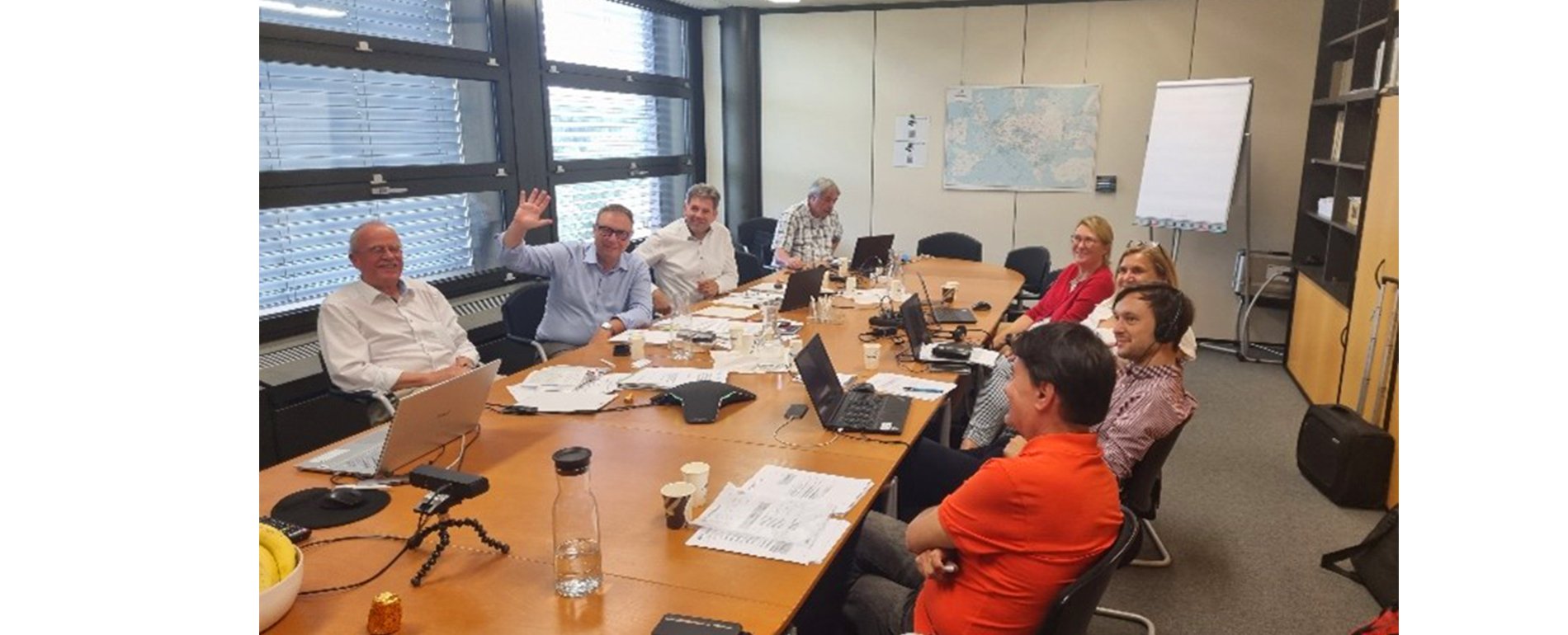2/23
34th meeting of the CIM Working Group takes place in late June

The 34th Meeting of the CIM WG was held as a hybrid meeting and was chaired by Cristian Cuenca (DB Cargo) at the CIT Headquarters in Bern. The meeting took far-reaching decisions for the further enhancement of the CIT freight products. The CIM WG 35th Meeting is set to be held in late November.
New supplements to the CIT freight products effective 1 July 2023
On the basis of the decisions taken by the CIM Committee on 23 March 2023, amendments were made to the following CIT freight products: the CIM Consignment Note Manual (GLV-CIM), CIT Freight Manual (GTM-CIT) and the checklist for sealing wagons (Appendix 1 to GTM-CIT). These changes take effect on 1 July 2023 (except for Appendices 14 and 16 to GTM-CIT, which take effect on 1 January 2025) and concern, in particular:
-
Indication of the customs procedure code in the consignment note (Appendix 2 box 21 GLV-CIM and Appendix 27a GTM-CIT);
-
Affixing of the wagon label, shunting restriction label and the label for customs-controlled consignments (Appendices 14, 15 and 16 GTM-CIT);
-
Use of electronic seals (Appendix 1 GTM-CIT and IRS 40426 UIC).
Furthermore, the provisions of GTM-CIT have been revised to prioritise the electronic (rather than paper-based) end-to-end exchange of data.
New CIT checklist, including irregularities reporting sheet for cross-border rail freight movements
The purpose of this new CIT freight product, an optional checklist, is to improve quality on international rail freight movements while also reducing costs by applying a harmonised means of assessing and interpreting irregularities during transit and by using real-time multilingual communication between railway undertakings. The checklist will also enable the introduction, at international level, of harmonised, standardised procedures for the identification, reporting and remediation of irregularities in the international carriage of dangerous goods (RID) and/or waste. Furthermore, the checklist will collate all the requisite documents accompanying the consignment note.
Under the opting-in principle, the optional checklist will be applied by those RUs which have agreed to do so on cross-border movements by rail of dangerous goods and waste (see the article on ‘The difficulties and challenges of the international rail transport of waste: the work of the ad hoc “Waste Expert Group” (WEG)’ in this issue of CIT-News). Using the “irregularities reporting sheet for cross-border rail freight movements”, irregularities will then be reported, the action required under the applicable international statutes will be notified, and the people responsible for resolving the irregularities or needing to be informed thereof will be indicated. The form will also enable smoother exchange of documents and information about irregularities and/or recurrent difficulties on the cross-border transport of waste. In this regard, rail carriers are faced with numerous difficulties and have no common reference document enabling them to eliminate such problems: this slows down consignments, burdens carriers with additional avoidable costs, and hampers the viable and efficient carriage of waste. Using the form and applying the new CIT checklist could reduce such document-related barriers, which are coupled with the significant challenges facing carriers in addressing irregularities.
EU unveils new Green Freight package
On 11 July 2023, the European Commission published three legislative proposals in the framework of the Greening Transport Package, including:
-
Revision of the Weights and Dimensions Directive (96/53/EC);
-
draft Regulation on the use of railway infrastructure capacity in the Single European railway area;
-
draft Regulation for a harmonised framework for greenhouse gas emissions accounting of freight and passenger transport services (CountEmissionsEU).
The CIT GS will liaise with CER in September 2023 in order to study these proposals and to elaborate the remarks that need to be raised to improve the texts. The CIT GS will then aim to analyse the potential impacts on single CIT products and CIT members alike.
erik.evtimov(at)(at)cit-rail.org
